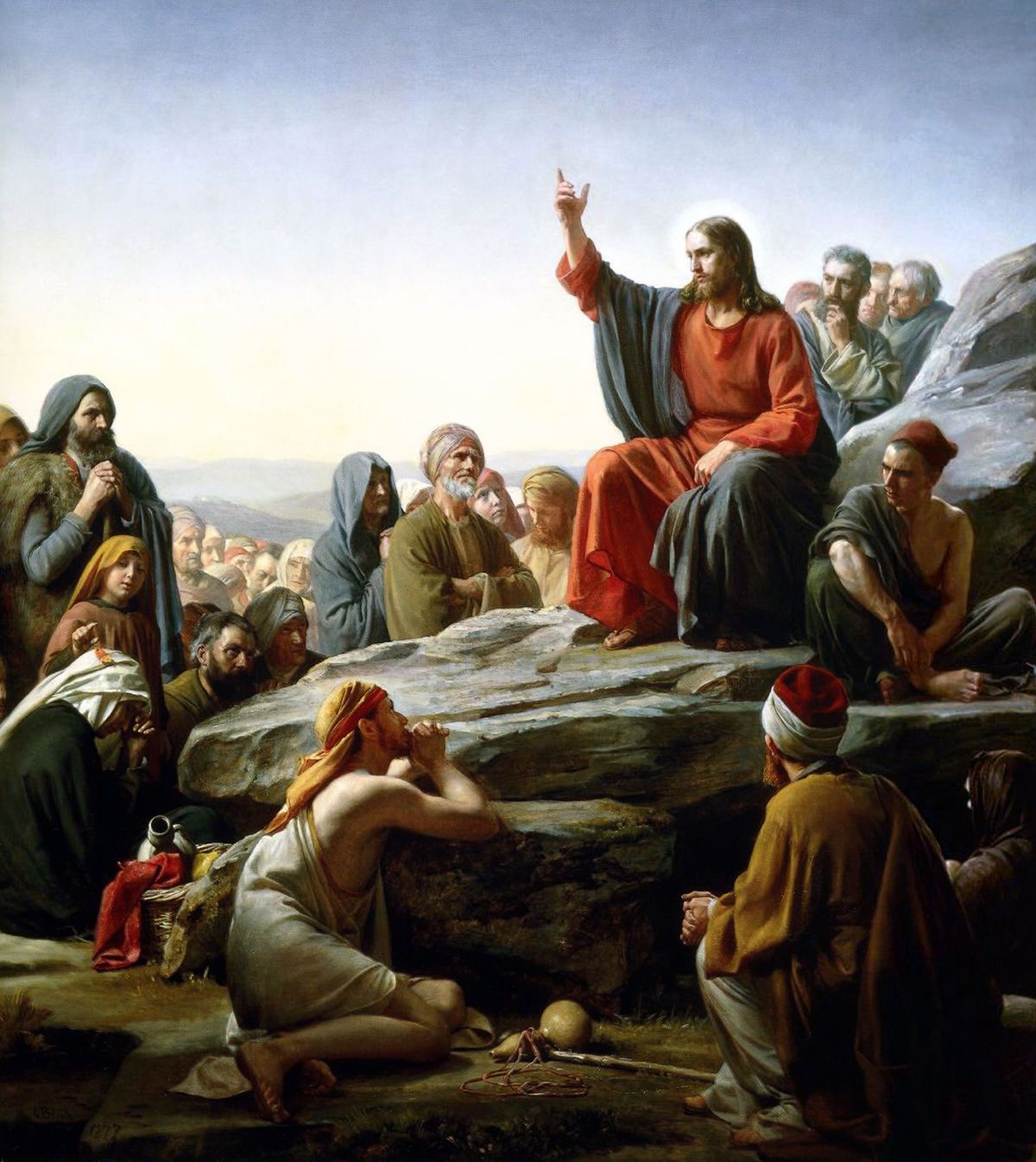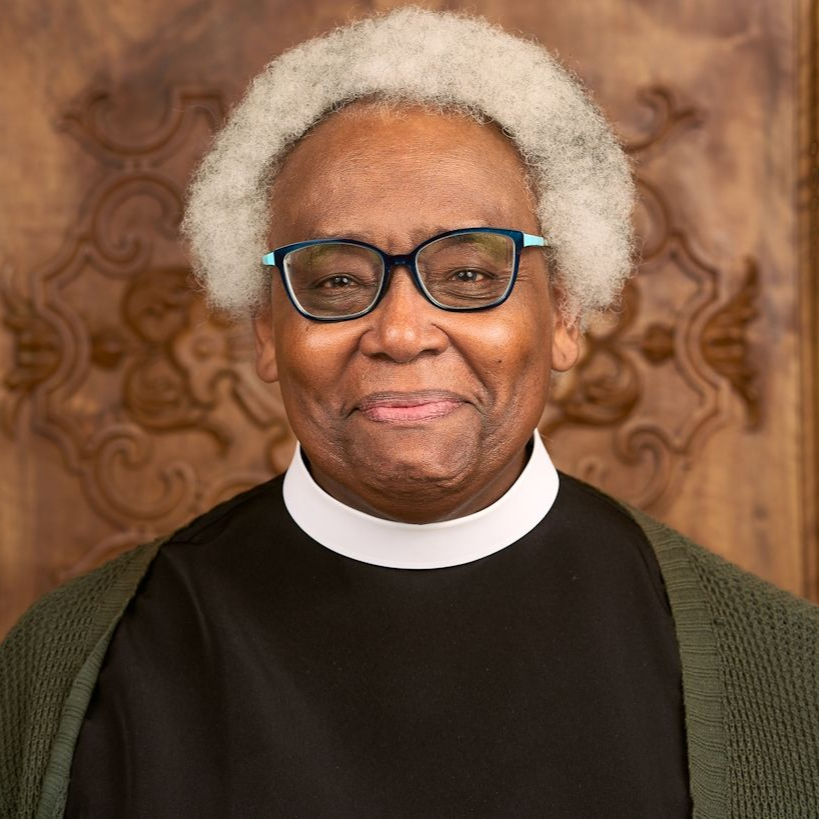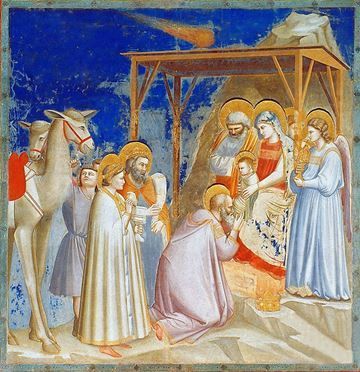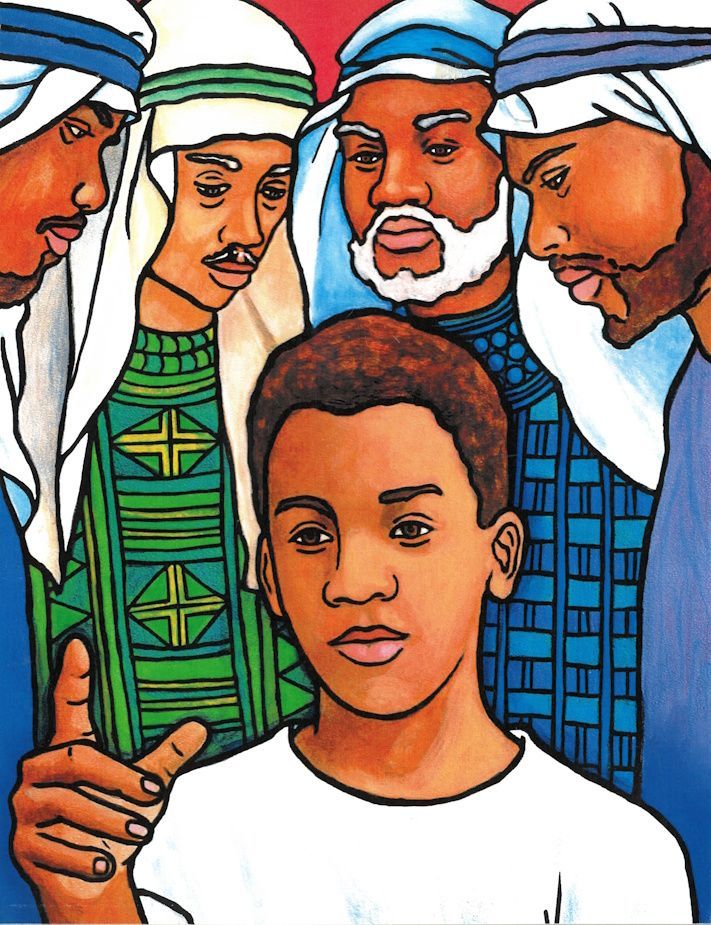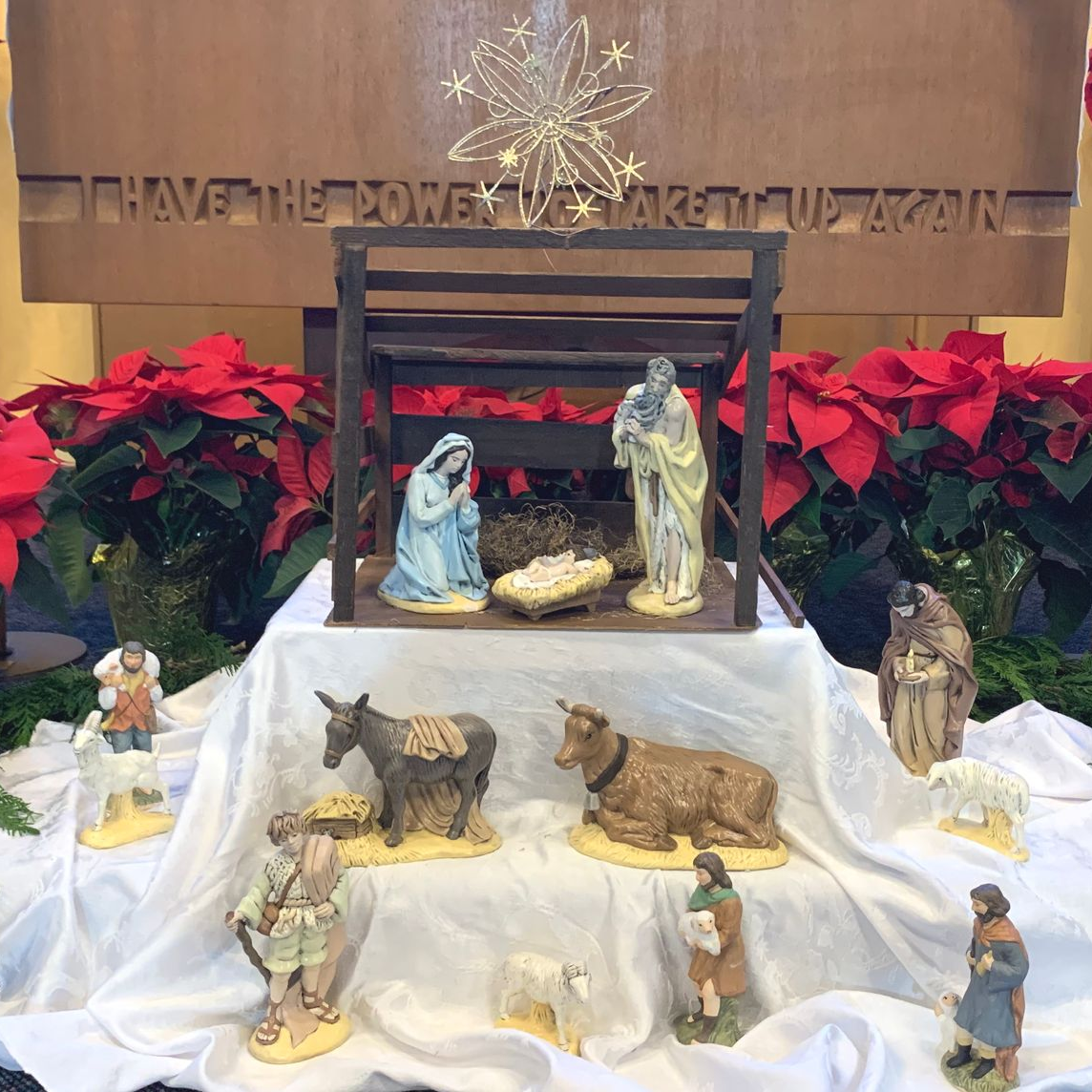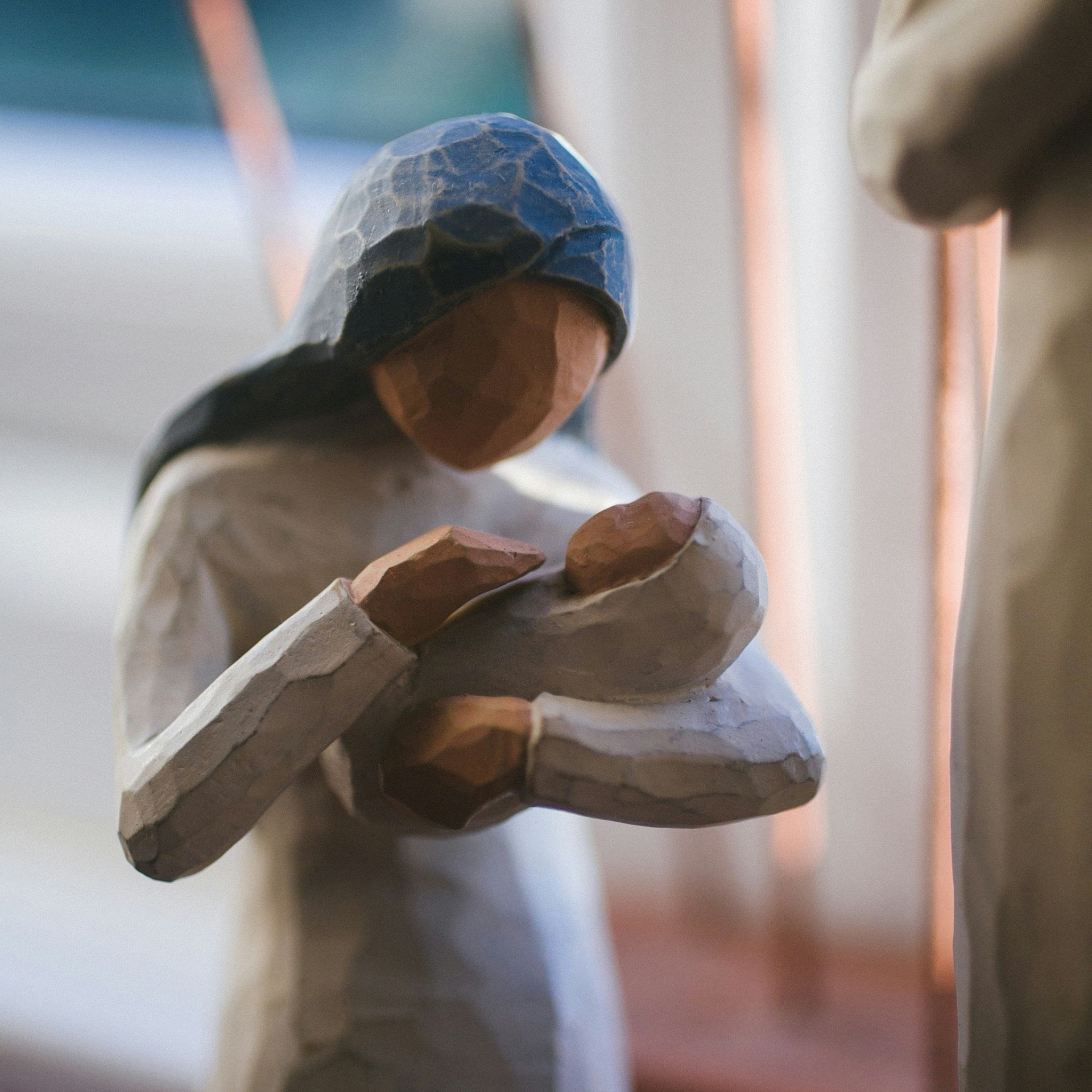Turning Around
That’s what repentance is. It’s not about beating yourself up with guilt and shame.
2025-29
sermon preached at Church of the Good Shepherd, Federal Way, WA
www.goodshepherdfw.org
by the Rev. Josh Hosler, Rector
The Fifth Sunday of Easter, May 18, 2025
Acts 11:1-18 ;
Psalm 148 ;
Revelation 21:1-6 ;
John 13:31-35
I’d like to invite you all into a shared imaginative space with me. We’re going on a hike together. You may wish to close your eyes if that will help. It’s a balmy spring day, and it’s not raining anymore, and everything smells fresh and clean. We enter the woods, and suddenly the sounds of suburban life all around us disappear, to be replaced by the cawing of crows and the rushing, glacier-melted waters of a stream. The sun dapples the leaves. There’s some mud, but not too much, and we’re all wearing good boots. The day couldn’t be better.
After a while, though, we realize something is wrong. We don’t know where we are anymore. We were sure the trail would lead to a certain meadow, from which we could eventually find our way through the woods and back to the road. But now we appear to be lost.
We have two choices, right? What are our two choices?
That’s right. We can stubbornly plow ahead, certain that we would never actually get lost in these woods!
Or … we can humbly turn around and retrace our steps.
Which option makes more sense? I guess that depends on the degree to which we admit we are actually lost. For a time it might be worthwhile to keep going, to see if maybe we only lost our bearings for a moment. But there is a rule of diminishing returns. If we are truly lost, eventually we’ll just have to eat crow.
You know the term, right? “Eating crow”? It’s an odd expression, and we don’t know for sure where it comes from. The most convincing explanation I’ve heard is that it may have been the result of a bet—that the loser literally had to eat crow meat. But now we use it to mean, “Humbly admit that you were wrong and move on.”
Well, the point is that none of us can know everything all the time, and we keep learning. There’s nothing wrong with being wrong. It just means we’re human. And while some of us dislike being wrong more than others, the skill of dealing with being wrong is a basic sign of maturity. To be wrong and grow from it is how we become better people. If we can never admit we’re wrong, we’re likely to get stuck and cause a lot of harm to others.
Last week we left Peter in Joppa, staying at the home of a tanner named Simon. Now, do you know what tanning is? No, we’re not talking about lying on the beach in a bikini. Tanning is the process of turning animal hides into leather. Does that sound fun? Think again. Take a dead animal, skin it and clean the hide using foul-smelling acids, including an especially useful acid called urine … well, you get the idea. Everything about the job would render the tanner ritually unclean every single day that he worked. And he would come to smell bad all the time, such that he might even have a hard time finding a wife!
Now, understand that to be “ritually unclean” was not a sin. In ancient Judaism, everybody became ritually unclean from time to time—a woman on her period or having just given birth, anyone who had just had sex, anyone who had come into contact with blood or a dead body—none of this was sinful, because it was inevitable. But it did render one temporarily unfit to participate in worship. You had to make yourself clean to draw close to the presence of God, whether through a cleansing ritual or just by waiting for a set amount of time. It was the way the rules worked, and the purpose of the rules was to show proper respect for God’s holiness.
The problem was that certain people had to be ritually unclean pretty much all the time. The fact that Peter is even staying with this guy shows how much he has already changed, because tanners didn’t typically find themselves making up their guest rooms! Jesus taught Peter well that there were all sorts of Jews whose entire life situation made it difficult or impossible to follow the rules of ritual cleanliness. So you can see why a tanner like Simon might have been ready to hear about Jesus, who flagrantly broke the rules about ritual purity on a regular basis to demonstrate that mercy is a more important concern than ritual.
But then Peter has a vision from God that sends him even deeper. God lowers a heavenly tablecloth filled with animals that Jews have always considered ritually unclean—which is why they just don’t eat them. It’s one thing to have to be unclean, but it’s another thing entirely to do it on purpose when it could be easily avoided. “No way!” Peter says to God. “Never in my life have I eaten any of these things! I’m not going to start now.”
“Oh yeah?” God replies. “Well, what if I just declare that these things are clean now? Isn’t that my right? Will you keep following the rules that I don’t demand of you? Here—alongside the marinated pork and roast alligator is a delicious helping of crow.”
The vision happens three times, and then immediately Peter is approached by a Roman centurion named Cornelius, a Gentile and a colonizer, who says, “I’d like you to come stay at my house and tell me about this Jesus guy.”
Stay at the home of a Gentile? OK, that’s not forbidden, but it would definitely make a Jew like Peter ritually unclean. And it could easily be avoided, so why do it at all? Because God has arranged it. There’s a higher call here than the treasured rules of ritual. Peter finds that he is lost in the woods … and now he has to turn around and retrace his steps.
And that’s what repentance is. It’s not about beating yourself up with guilt and shame. Repentance simply means “turning around”—the Greek word is metanoia. There’s nothing wrong with rules per se, but merely following the rules doesn’t make you a better person. And overemphasizing them at the expense of human thriving will make you worse! If Peter wants to grow, he’s going to have to suspend a lifetime of assumptions about what makes something right or wrong. Because once you decide to turn around, you can see what you hadn’t seen before.
When, after this episode, Peter goes to Jerusalem, his fellow apostles take him to task for staying in a Gentile home. So he relates his vision to them and tells the story of God’s Holy Spirit moving powerfully and undeniably in this whole situation. His story silences them completely. The game has changed. Even Gentiles get to join the Jesus movement! They put it like this: “Then God has given even to Gentiles the repentance that leads to life.”
The repentance that leads to life. As usual, I feel I have to point out that the salvation of Cornelius is not about him getting into heaven when he dies. It’s about a transformation of his life now—and the lives of all those around him! The baptism of Cornelius is not just for him and his family. It has a powerful effect on the whole church. What if we welcomed every baptism with that level of awe? When Parker Chang was baptized here two months ago, did you allow the Holy Spirit to blow your mind?
This also shows how repentance and baptism are tied together. You can’t have one without the other. Of course, when we baptize children, we don’t make them intellectually walk through a list of all the things they’ve done wrong—that would be ridiculous. Instead, we start them on the path of Christian community. As they keep walking it, they will participate in weekly worship, learn from peers and elders, and serve the world in Jesus’ name, using the gifts they discover within themselves.
They will also make mistakes. They will mess up and hurt people. Over time, our hope is that they’ll live a life of consistent repentance—not because they are inherently depraved, but because only through repentance can we grow in love for one another and for God’s world. And all the people in their lives will benefit from the love implanted in them by the Holy Spirit at their baptism.
At the last supper, Jesus is glorified by God in the moment of his betrayal by Judas. Isn’t that weird? Jesus is glorified because he invested in love, whether or not that love was received and acted on. So he commands his friends: “Love one another.” He calls it a new commandment, but there’s nothing new about it at all. Jesus is clarifying the proper priorities of human beings. We are not to live only for ourselves, but also for others.
Well, life is a gift, and life is long, but nothing lasts forever. Life is also full of pain that we would all love to put behind us. So at the very end of the Bible we have this odd vision of the end of all things, and here we find what may be my favorite verse in the entire Bible: “See, the home of God is among mortals.”
This is why I’m a Christian. Because the project of life is not to escape it in favor of something better. No, God came among us in person, to show us the whole point of life. We are here for one another, and that necessarily involves pain, disappointment, and loss. We all go through it together. We learn how to be holier from the sins we commit and repent of. This is the very method God keeps using to make all things new. So we hear that when all is said and done, we will not escape this world for a better place. No—in the end, God comes to us, collapsing heaven and earth into one beautiful reality.
Today, do you have a need to turn around? To stop going in the way you’ve been going and move your feet in a different direction? We are still moving through the fifty-day season of Easter, when in our rituals we recognize that we are swimming in a sea of forgiveness! There is no reality in which God does not include you. Jesus invites you to this table today, to meet him in person, to meet him in the faces of all the other people in this room. Come live the repentance that leads to life. Amen.



